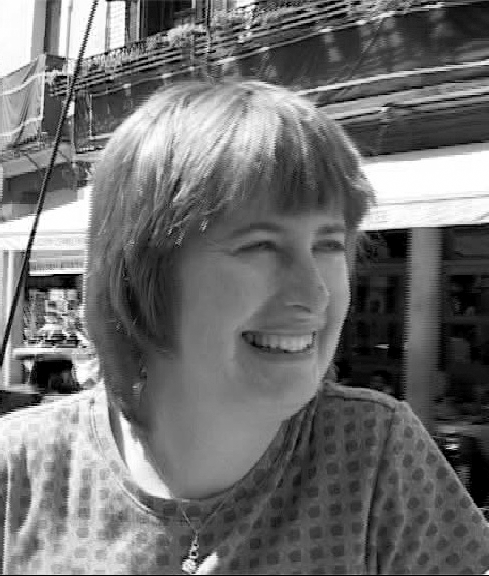Katica Avvakumovits Things Have Come Full Circle

The fact that my father was a ’56-er – he escaped Hungary in November of that year, at age 21 – is part and parcel of the story of our family and how we got to the U.S. My mother’s family left Hungary after the Second World War; they were married in San Francisco.
One of my parents’ central principles was to raise us, their three California-born children, to be Hungarians. Of course, we were Americans, too – that was fine, but making us Americans required no effort on their part. Raising us to speak Hungarian and to feel connected to our grandmother and cousins living behind the Iron Curtain – now THAT took a lot of effort.
As part of that effort, both my parents volunteered as leaders in the Hungarian Scout troop of the San Francisco Bay Area. The scouts, at that time, were all children of ’56-ers, all “forced” to speak Hungarian at home. We all learned to read and write Hungarian, and some basic history and literature. (This peer group at scouts made it easier for me to acknowledge our roots at our Catholic parochial school, where 98 percent of the kids were either Irish or Italian, and no one knew where Eastern Europe was, much less Hungary.)
However, it would be wrong to assume that my brothers and I grew up in a hothouse of anti-Communist fervor and Hungarian nationalist feeling. For one thing, my parents were still young when they left Hungary (my mother only a child), and while it never occurred to them that they might be anything other than Hungarian, they were perfectly open to embracing the English language, getting to know their friendly American neighbors, and appreciating the advantages of American society. And so we children didn’t (usually) view our parents as relics from the Old Country.
My parents’ continued connection to their homeland did not let our family’s image of Hungary recede into a picture of nostalgia or bitterness. As children, we were raised to know the names of our Budapest relatives, to write Christmas cards to aging aunts and to know the street names where our parents grew up, and where our relatives still lived. A family trip to Hungary during the summer of my 7th year made these connections real and lasting. As children, we knew from experience that Hungarians were not just an oppressed nation groaning under the Soviet yoke; Hungary also meant yellow streetcars, exotic ice cream flavors, zebra-striped crosswalks, and friendly cousins who sported the same outlandish last name as ours.
And yet – we knew perfectly clearly, from attending (long and boring) October 23 commemorations in San Francisco, from learning about the plight of Hungarians in Transylvania, from gentle warnings about what “not to talk about” while visiting Hungary – that things were not okay in Hungary, and that we, as Hungarian-Americans in the free world, had an obligation to somehow “carry the torch,” because if we didn’t, something would be lost. I could not have defined the obligation more concretely, but the sense of obligation was real – conveyed to us most effectively by our parents and other adult scout leaders who were proud of their Hungarian heritage and able to impart its values in concrete and positive terms. This sense of vague responsibility was real enough that in 1989 and 1990, already an adult, I was literally relieved that now we – Hungarian-Americans in the West – were off the hook; Hungary was a democracy, the crimes of the past 40 years would be uncovered, historical distortions corrected, and 1956 celebrated and remembered: not (just) in church basements and community centers in the West, but in Hungary, publicly, officially and with dignity.
Now I am 39 years old; for the past 6 years, I have lived with my husband and two sons in Budapest, just one block away from where my father grew up, in the same city he fled exactly 50 years ago. At least for our family, things have come full circle.
While I am well aware that, in many respects, Hungary is still a post-Communist country, is not yet a “normal” European country, and Hungarians on both sides of the Atlantic get terribly exercised (often justifiably) about distortions that remain and atrocities still hushed up – I believe that these things are settling into place. I am still a Hungarian-American. I am not a “native” here; being an American is an important segment of my dual identity, and I refuse to split hairs over which one I “really” am. But I look forward to the 50th anniversary commemorations in October; we’ll be on-site in Budapest with our sons, and will tell them (without having to whisper) about their grandfather’s role in history.
Katica Avvakumovits
Katica was born and raised in the San Francisco Bay Area, where her parents and brothers still live. After college she spent four years with the Hungarian Human Rights Foundation in New York and Washington, DC, working on behalf of Hungarian minorities in Central Europe. Since 2000, she has been living in Budapest with her husband Zsolt (a German-born Hungarian raised in Argentina) and their two sons.




